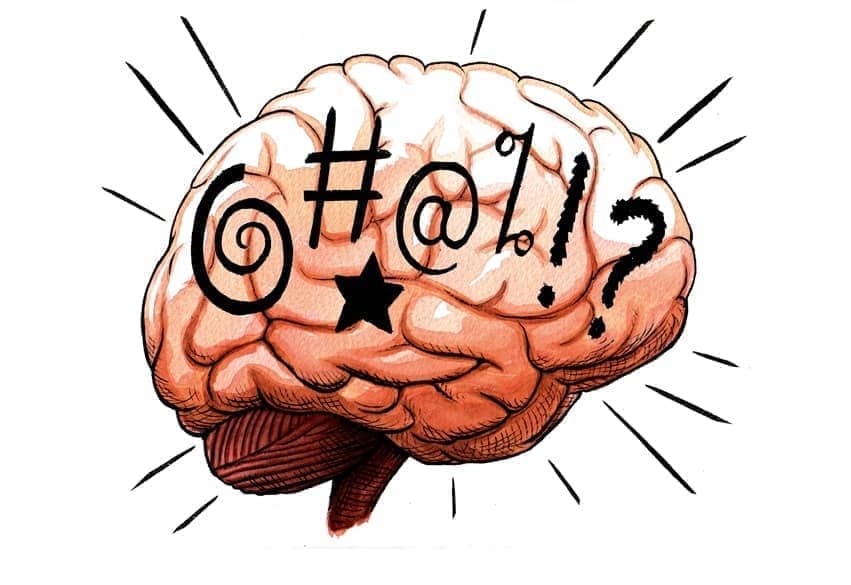Everything is trauma. From Barbie’s Oscars snub (very traumatic) to Taylor Swift’s new album (also deeply traumatic), profound emotional distress appears to be everywhere. According to the Diagnostic and Statistical Manual of Mental Disorders (DSM), trauma requires ‘actual or threatened death, serious injury, or sexual violence’. A horrific car crash, a terrorist attack, an armed robbery, these all fit the bill. An Oscar snub does not. Why, then, do so many people appear to think of themselves as traumatised?
It’s certainly a clickbaity concept, but it’s not a scientific one
This raging fire of self pity is being fuelled by unqualified influencers who call themselves ‘trauma coaches’. They preach to their hundreds of thousands of followers, offering them words totally devoid of wisdom. In fact, TikTok has become so synonymous with trauma that some refer to it as TraumaTok. Experiencing difficulty in making minor choices? You could be ‘traumatised’ and in need of assistance from May Chow. Known as @somaticspirit on TikTok, Chow, who has 61,000 followers, describes herself as a somatic trauma healing artist. Quite a mouthful. That’s because it’s a load of New Age nonsense. Last year, Chow went viral after sharing a video demonstrating a trauma-processing technique. After positioning herself on her bed, Chow began trembling and screaming like a crazed banshee.
On TikTok, trauma appears to be the answer to just about every question imaginable. Why do I procrastinate? It could be a potential trauma response. Do you enjoy watching your favourite shows over and over? Are you a perfectionist? All of these could be potential trauma responses. Spending excessive time scrolling on social media to the extent that you question if it’s becoming problematic? It might be a trauma response. You get the picture.
When discussing the misuse of the word ‘trauma’, one must consider the influence of Gabor Maté. For the uninitiated, Maté is a Canadian doctor and pop psychologist. He is a compelling speaker and regularly appears on major podcasts, including Steven Bartlett’s wildly popular Diary of a CEO. His views on trauma are particularly worrying. In his best-selling book, The Myth of Normal, Maté argues that ‘someone without the marks of trauma’ should be considered ‘an outlier in our society’. In other words, virtually every single one of us is traumatised.
This is not true, and it’s certainly not a healthy view of society. Maté suggests that there are two types of trauma: Big ‘T’ trauma and little ‘t’ trauma. The former is in line with the DSM definition. The latter is not. Little ‘t’ trauma, according to Maté, is frequently overlooked as it lacks a connection to a catastrophic incident. Non-life threatening injuries, financial concerns, and the loss of relationships are just a few examples of little ‘t’ trauma. It’s certainly a clickbaity concept, but it’s not a scientific one.
Maté’s sweeping definitions are part of a much bigger problem. And that problem is victimhood culture, which encourages individuals to react to even the most minor of offences with a mixture of outrage and despair. Pain and suffering now bestow validation. It is like Darwinism in reverse – allowing the weakest to not just survive, but thrive.
Much of this psychologised language has seeped into our popular culture. GQ recently published a piece revealing the many ways in which ‘therapy-speak’ has ruined pop music. ‘Words like “toxic”, “dysregulation” and “trauma-dumping” – expressions that used to stay in the therapist’s office – have invaded our films, our friends, and now, it’s coming for our pop music’. Ariana Grande’s latest album contains a song which references ‘therapy’, ‘codependency’ and the desire to ‘self-soothe’. The aforementioned Taylor Swift’s describes her new song, ‘Fortnight’, as ‘a traumatic, artistic tragic kind of take on love and loss’. In 2017, Pink, a pop star who has been around for over 20 years, released an album titled ‘Beautiful Trauma’.
What we are witnessing here is semantic satiation. This occurs when a word is repeated continuously, causing it to eventually lose its original meaning. Trauma was once a word used to describe severe bodily injury. Then it became highly distressing circumstances that fall beyond the typical scope of human encounters. Today, however, it means the stresses and strains of everyday life. Soon it will mean nothing at all.







Comments